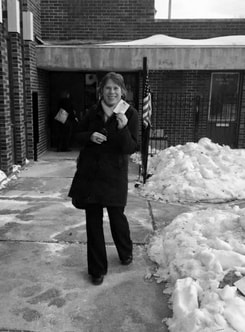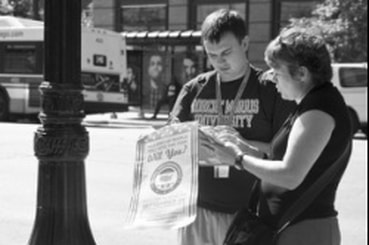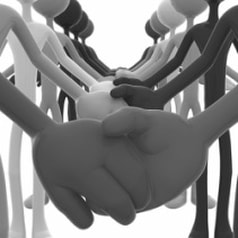 February 25, 2015 February 25, 2015 I know how they feel. I’m also a Chicago Election Loser (CEL). I have a lot of friends who are CELs. If you read this on Wednesday, February 27, and think “Crap, she means me!” I say, “Welcome to the club.” I may be biased, but I think you are in good company. I became a CEL on February 25, 2015, when I lost my aldermanic race. Due to some absentee ballot counting and a lawsuit, the race wasn’t called until much later, but since I was in 3rd place, I had the pleasure of losing on election night. I ran against a Machine candidate (the daughter in a Chicago dynasty) and a teacher’s union-supported candidate. I was the nobody, nobody sent. I am a community organizer, with a degree in public affairs, twenty years’ experience in community development around the world, and I know five of the 45+ languages spoken in the ward. And yes, based on that statement, I obviously thought I was the best person for the job. You have to believe you are the best candidate… or you are a bad candidate. After my loss, there were the “expected” responses, which the 95 new CELs will be hearing over and over in the next couple weeks.
0 Comments
 Photo by A. Rezin http://bit.ly/16rqWiK Photo by A. Rezin http://bit.ly/16rqWiK I have a soft spot for Volunteers with Tom Hanks and John Candy because it's one of the rare movies about the Peace Corps and where Tom Hanks doesn’t portray the “good guy.” Instead, Hanks plays Lawrence Bourne III, a wealthy playboy with a gambling problem who accidentally joins the Peace Corps while escaping his bookie. Candy plays Tom Tuttle, a do-gooder volunteer who also lives in the village where Bourne is assigned. At one point, Bourne explains his lackadaisical attitude towards making a difference in one short line, "It's not that I can't help these people. It's just I don't want to." I spend many evenings a month with different voluntary organizations in my neighborhood. I enjoy meeting my neighbors and learning about what they care about, but I often wonder why it’s the same dozen or so people. Most of my neighbors want positive change in the community and believe it's important to be part of the democratic process, so why don't they show up? Can a nonprofit somehow figure out who is likely to volunteer and who isn't? What makes someone stop being a Bourne and start being a Tuttle?  photo credit: lumaxart via photopin cc photo credit: lumaxart via photopin cc Coalition. You hear the word a lot. Coalition of the Willing. Christian Coalition. Rainbow PUSH Coalition. Coalition Against Gun Violence. Two hundred million hits for the word on Google. Why are there so many? What are the benefits? Disadvantages? How do you decide whether to join? Coalitions are a group of like-minded people aligning themselves long-term to meet common goals. Nonprofits form coalitions to provide services, to educate, or to advocate. Before jumping into a relationship with another organization, you should think through the implications to ensure you are maximizing the benefits to your stakeholders. 
I love figuring out how things work. I read instruction manuals for new gadgets - paying special attention to the "troubleshooting" section so I can anticipate potential problems. I drive my chiropractor nuts asking questions about why he is adjusting "this" joint to help "that" pain. And although I suspect she is exaggerating, my mom swears that my first word was “why?”

I’m a “passionate geek” about advocacy. A citizen’s right to tell her elected officials what she wants is, to me, an essential part of democracy. Google any political or social issue and you will find someone who advocates for or against it. The environment. The second amendment. Education. Foreign Affairs. Public Safety. Infrastructure. Animal Rights.
Advocacy is voting intensified. It’s freedom of speech. If you're in a group, it's freedom of assembly and association. It’s how we tell the government to spend money and shape policy to better reflect our values. And I love it. |
annisa's blogIncludes professional topics, as well as thoughts about politics. I also keep a blog on Medium that includes these, as well as more personal posts. archives
January 2020
categories
All
|

 RSS Feed
RSS Feed